Senate Dems push new voting bill, and again hit GOP wall
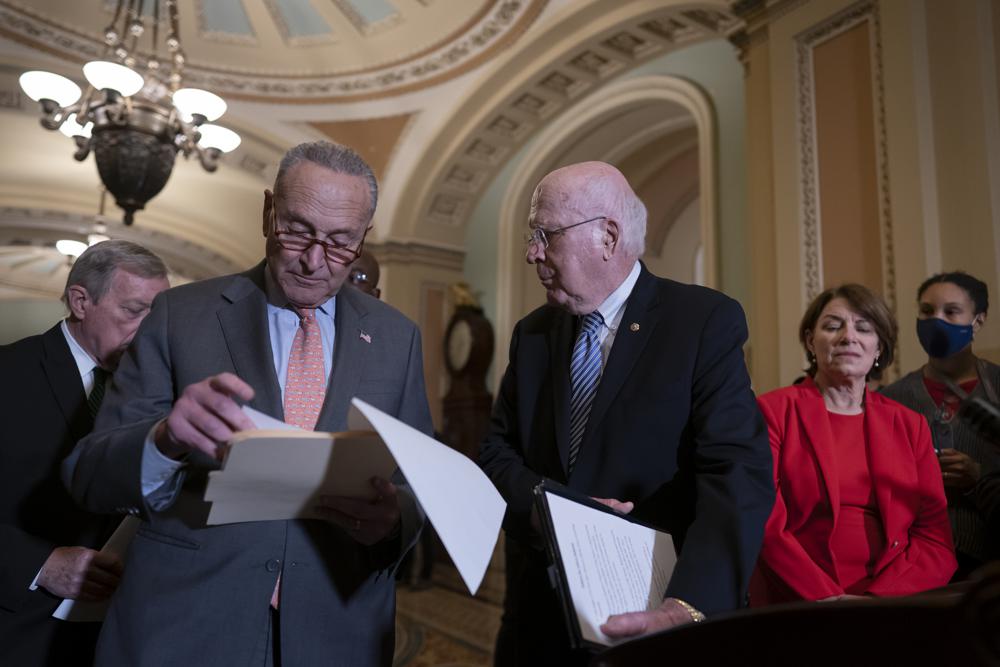
If at first you don’t succeed, make Republicans vote again. That’s the strategy Senate Majority Leader Chuck Schumer appears to be pursuing as the New York Democrat forced another test vote Wednesday on legislation to overhaul the nation’s election laws. For the fourth time since June, Republicans blocked it. Democrats entered the year with unified, albeit narrow, control of Washington, and a desire to counteract a wave of restrictive new voting laws in Republican-led states, many of which were inspired by Donald Trump’s false claims of a stolen 2020 election. But their initial optimism has given way to a grinding series of doomed votes that are meant to highlight Republican opposition but have done little to advance a cause that is a top priority for the party ahead of the 2022 midterm elections. The Senate voted against debating voting legislation Wednesday, with Republicans this time filibustering an update to the landmark Voting Rights Act, a pillar of civil rights legislation from the 1960s. GOP senators oppose the Democratic voting bills as a “power grab.” “This is a low, low point in the history of this body,” Schumer said after the failed vote, later adding, “The Senate is better than this.” The stalemate is forcing a reckoning among Senate Democrats about whether to make changes to the filibuster rule, which requires 60 votes for legislation to advance. That could allow them to muscle legislation through but would almost certainly come back to bite them if and when Republicans take back control of the chamber. Earlier Wednesday, Schumer met with a group of centrist Democrats, including Sens. Jon Tester of Montana, Angus King of Maine, and Tim Kaine of Virginia, for a “family discussion” about steps that could be taken to maneuver around Republicans. That’s according to a senior aide who requested anonymity to discuss private deliberations. But it’s also a move opposed by moderate Sens. Kyrsten Sinema of Arizona and Joe Manchin of West Virginia. Without their support, Democrats won’t have the votes needed to make a change. Time is ticking down. Redistricting of congressional districts (a once-in-a-decade process Democrats want to overhaul to make less partisan) is already underway. And the Senate poised to split town next week for a home-state work period. “Senate Democrats should stay in town and focus on the last act in this battle,” said Fred Wertheimer, who leads the good government group Democracy 21. The latest measure blocked by Republicans Wednesday is different from an earlier voting bill from Democrats that would have touched on every aspect of the electoral process. It has a narrower focus and would restore the Justice Department’s ability to police voting laws in states with a history of discrimination. The measure drew the support of one Republican, Alaska Sen. Lisa Murkowski after Democrats agreed to make changes that she sought. But all other Republicans opposed opening debate on the bill. “Every time that Washington Democrats make a few changes around the margins and come back for more bites at the same apple, we know exactly what they are trying to do,” said Senate Minority Leader Mitch McConnell, who slammed the vote as “political theatre” on a trumped-up a “go-nowhere bill.” Murkowski, too, said she still had underlying issues with the bill as written while criticizing Schumer’s decision to force repeated “show votes.” “Let’s give ourselves the space to work across the aisle,” she said Wednesday. “Our goal should be to avoid a partisan bill, not to take failing votes over and over.” The Democrats’ John Lewis Voting Rights Advancement Act, named for the late Georgia congressman who made the issue a defining one of his career, would restore voting rights protections that have been dismantled by the Supreme Court. Under the proposal, the Justice Department would again police new changes to voting laws in states that have racked up a series of “violations,” drawing them into a mandatory review process known as “preclearance.” The practice was first put in place under the Voting Rights Act of 1965. But it was struck down by a conservative majority on the Supreme Court in 2013, which ruled the formula for determining which states needed their laws reviewed was outdated and unfairly punitive. The court did, however, say that Congress could come up with a new formula. The bill does just that. A second ruling from the high court in July made it more difficult to challenge voting restrictions in court under another section of the law. The law’s “preclearance” provisions had been reauthorized by Congress with overwhelming bipartisan support five times since it was first passed decades ago. But after the Supreme Court’s 2013 ruling, Republican support for the measure cratered. Though the GOP has shown no indication that its opposition will waver, there are signs that some of the voting changes Democrats seek aren’t as electorally advantageous for the party as some hope. Republican Glenn Youngkin’s victory in Virginia’s Tuesday gubernatorial election offers the latest test case. Democrats took control of all parts of Virginia’s government in 2019 and steadily started liberalizing the state’s voting laws. They made mail voting accessible to all and required a 45-day window for early voting, among the longest in the country. This year they passed a voting rights act that made it easier to sue for blocking ballot access. But those changes didn’t hurt Youngkin, who comfortably beat Democrat Terry McAuliffe, a popular former governor seeking a valedictory term. That’s still unlikely to change Republicans’ calculus. “Are we all reading the tea leaves from Virginia? Yes, absolutely,” Murkowski said. “Will it be something colleagues look to? It’s just one example.” Democratic frustration is growing, meanwhile leading to increasingly vocal calls to change the filibuster. “We can’t even debate basic bills,” said Minnesota Sen. Amy Klobuchar, a Democrat. “The next step is to work on ideas to restore the Senate.” Republished with the permission of the Associated Press.
Mike Bloomberg’s influence stretches far and wide
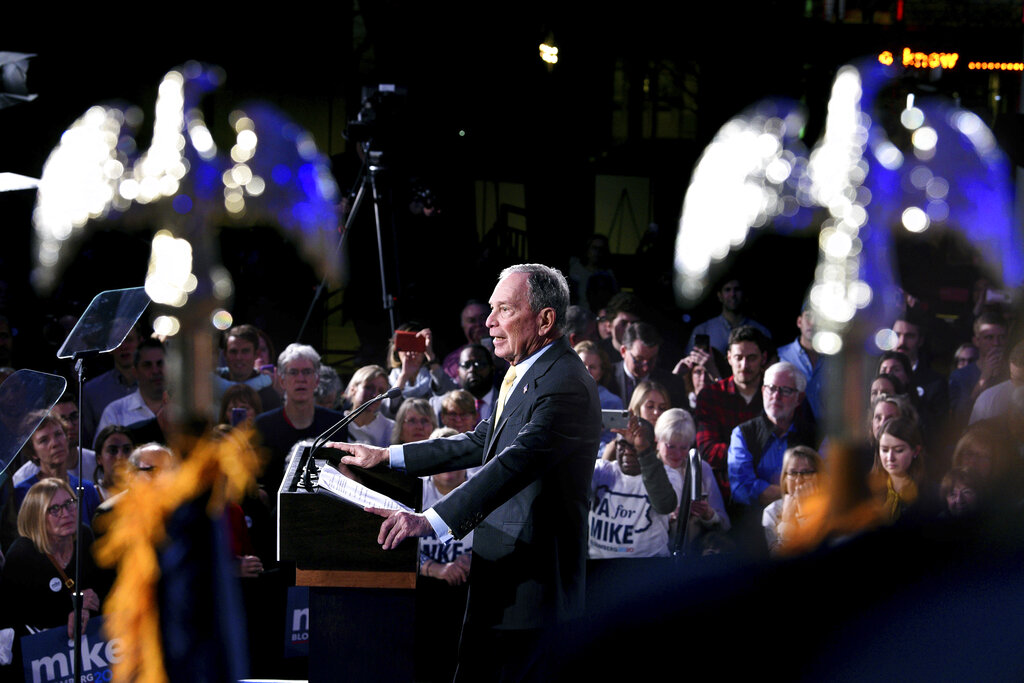
The impact of Mike Bloomberg’s business connections and foundation reaches far and wide.
One thing unites establishment Democrats: Fear of Bernie Sanders
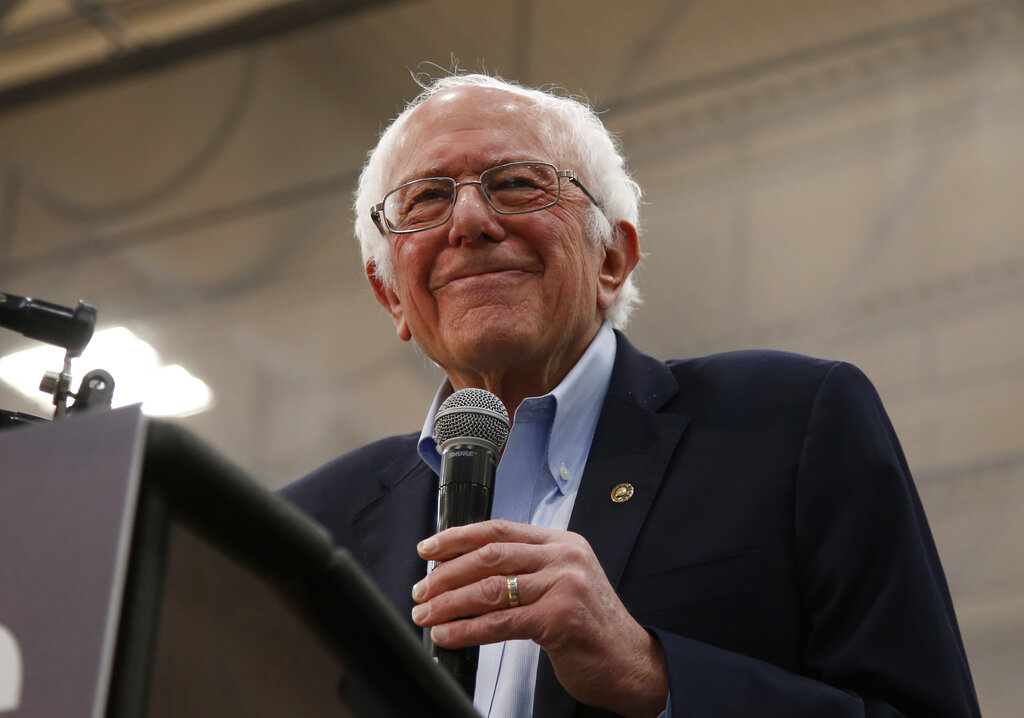
The dynamic between moderate candidates is complicated because each of them has glaring vulnerabilities.
Elizabeth Warren-Bernie Sanders rift has progressives nervous about fallout
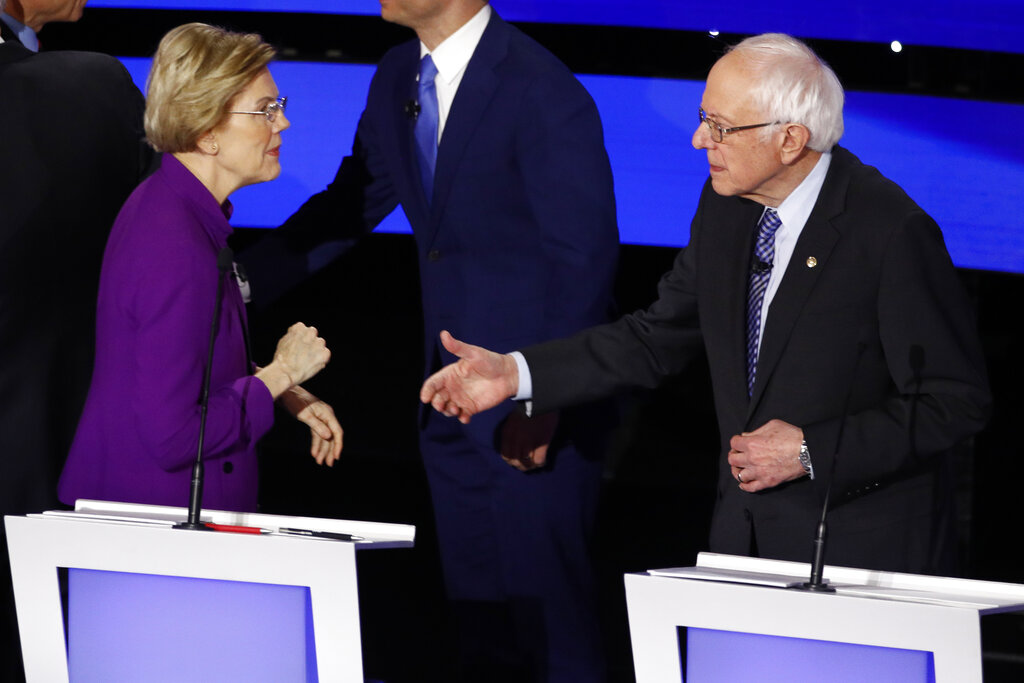
The rift stems from a private conversation in 2018.
Barack Obama returns to campaign trail for Dems in governor’s races
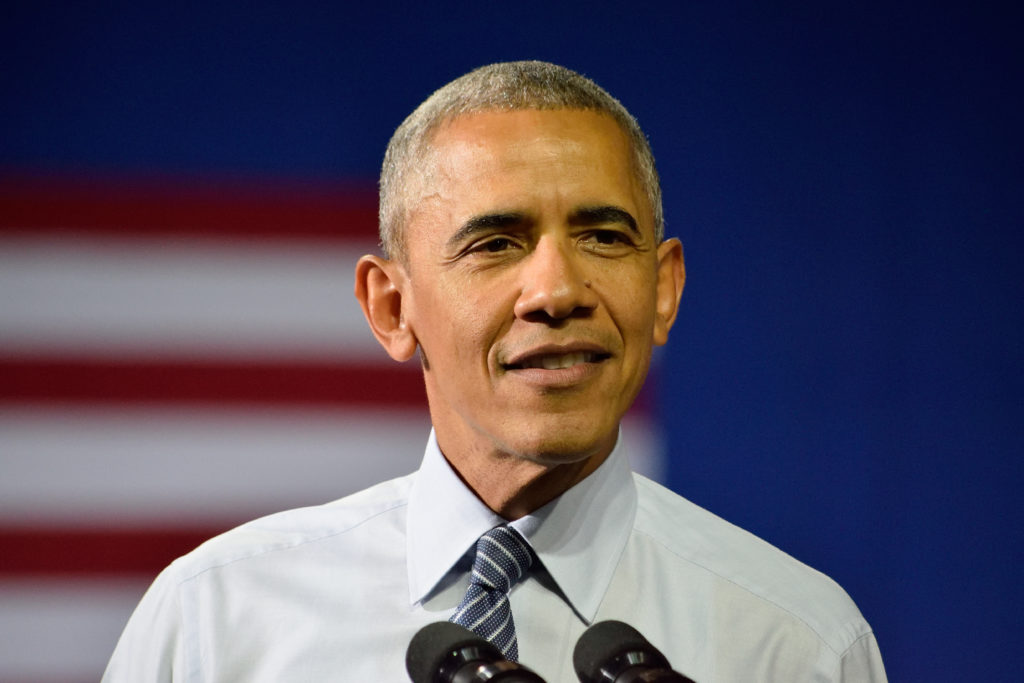
Former President Barack Obama is returning to the campaign trail to stump for Democratic gubernatorial candidates in New Jersey and Virginia as they gear up for next month’s elections. Thursday’s events mark the first time the former president is stepping back into the political spotlight since leaving the White House. Unlike more low-key appearances earlier this year, Obama’s foray into two states won’t be a one-and-done. He is planning more public appearances as the year closes, and preparation for the 2018 midterm elections begins. “Obama seems to be determined to be an engaged and active former president who’s playing a role in different issues and is involved in politics,” Rutgers University professor David Greenberg said. Obama is hoping to sway voters in New Jersey and Virginia, the only two gubernatorial races this year. Both Virginia Gov. Terry McAuliffe, a Democrat, and New Jersey Gov. Chris Christie, a Republican, are term-limited. Those Nov. 7 races will be considered a bellwether of Democrats’ strength in the face of President Donald Trump‘s victory last year. Obama will first drop in on campaign workers in Newark, New Jersey, for a private “canvass kickoff” for Democratic candidate Phil Murphy, who is running against Republican Lt. Gov. Kim Guadagno. The former president will then head to Richmond, Virginia, to rally support for Democrat Ralph Northam in his campaign against Republican Ed Gillespie. At the end of the month, Obama will go to Chicago to head up his first Obama Foundation leadership summit on Oct. 31 and Nov. 1, bringing in speakers like England’s Prince Harry, former Italian Prime Minister Matteo Renzi and artists like Gloria Estefan, Chance the Rapper and indie rock band The National. Obama’s popularity is still undeniable. In an August NBC News/Wall Street Journal poll, 51 percent of Americans said they have a favorable opinion of Obama, while 35 percent had a negative opinion. In the same poll, 36 percent said they had a positive opinion of Trump and 52 percent had a negative opinion. In Richmond, thousands of people lined up on Tuesday to get tickets to Obama’s rally. Retired Richmond social worker Nancy Jackson, 67, said she missed Obama “tremendously” and wished he could serve a third, fourth and fifth term. She said black voters like herself have been despondent since Trump took office. “I think Obama will bring some light to the end of the tunnel,” she said. Obama never completely disappeared from public life, in part because of Trump’s constant criticism and efforts to undo much of Obama’s legacy after eight years in office. He has publicly defended his policies that Trump and the GOP-led Congress have set out to dismantle: the Affordable Care Act – or Obamacare – and the Deferred Action for Childhood Arrivals program, which allowed immigrants brought into the country illegally as children to be temporarily shielded from deportation. Obama was forced to return “pretty quickly,” presidential historian Julian Zelizer of Princeton University said. “The current president has changed all the conventional assumptions about what to do,” Zelizer said. “There is a sense of urgency that makes this moment different than others and former President Obama has continued to be directly in Trump’s line of fire – both his policies and his legacy.” Republished with permission from the Associated Press.
Over 29 states rebel as Trump election-fraud panel seeks voters’ personal data
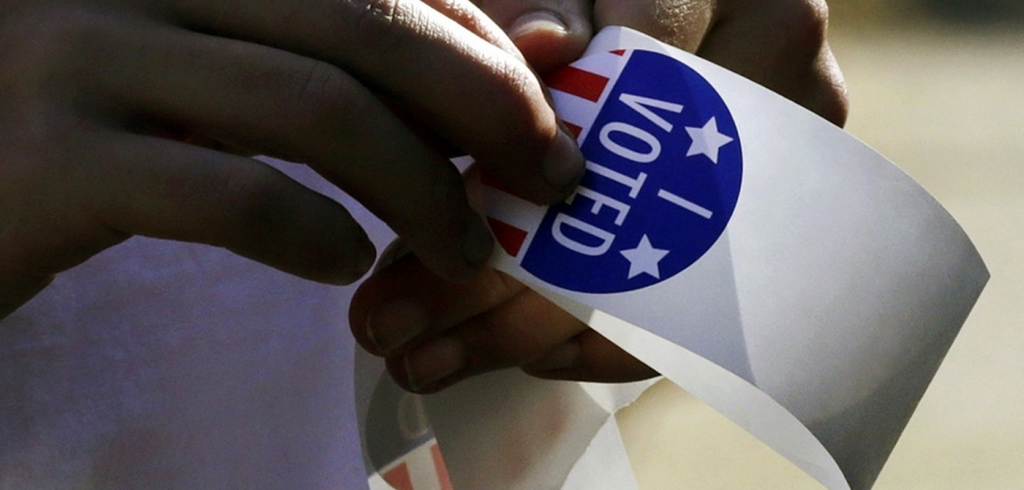
At least 29 states are signaling resistance or all out rejecting to comply with the Trump administration’s request for voter registration data. President Donald Trump’s commission on election integrity has asked all 50 states to provide all publicly available voter roll data, going back through 2006, be sent to the White House by July 14 ahead of the panel’s first meeting. Requested data includes names, birth dates and partial Social Security numbers of all registered voters in an effort to look into voter fraud and other election irregularities. The request was made by Kris Kobach, the Kansas secretary of state and the vice chairman of the commission, saying the commission intends to “fully analyze vulnerabilities and issues related to voter registration and voting.” But both red and blue states are saying the request is unnecessary and unwarranted. “I have no intention of honoring this request,” Virginia-Democrat Gov. Terry McAuliffe said in a statement Thursday. He believes the commission is “politically motivated and silly posturing.” Mississippi-Republican, Secretary of State Delbert Hosemann, said told members of the commission to, “go jump in the Gulf of Mexico,” refusing to turn over any voter information. Virginia and Mississippi are joined by Arizona, California, Connecticut, Indiana, Iowa, Kansas, Kentucky, Massachusetts, Minnesota, Montana, New Mexico, Nevada, New York, North Carolina, North Dakota, Ohio, Oklahoma, Oregon, Pennsylvania, Rhode Island, South Dakota, Tennessee, Texas, Utah, Vermont, Washington and Wisconsin in pushing back against the commission’s request. Nevertheless both Kobach and Trump claimed millions of people voted illegally in the November election. They have yet to provide any proof of their accusation. Saturday morning, Trump tweeted: “Numerous states are refusing to give information to the very distinguished VOTER FRAUD PANEL. What are they trying to hide?” Numerous states are refusing to give information to the very distinguished VOTER FRAUD PANEL. What are they trying to hide? — Donald J. Trump (@realDonaldTrump) July 1, 2017
Terror fears permeated GOP week — Dems barely mention them
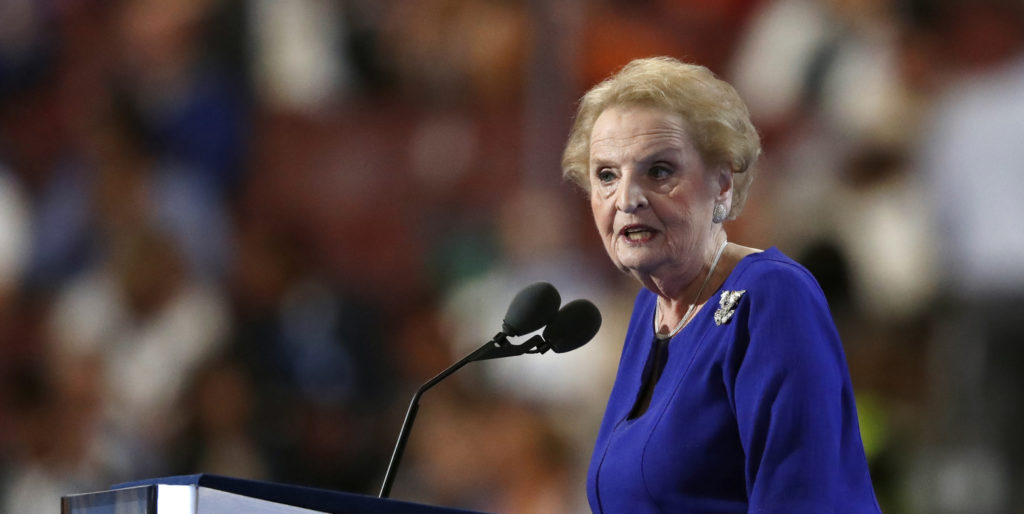
After terrorism fears permeated Republican speeches a week ago, Democrats have barely mentioned the Islamic State group through two days of their convention. That is perhaps a result of the militant group’s emergence from a localized, Middle East insurgency to a self-proclaimed caliphate and worldwide terrorism threat during President Barack Obama‘s time in office. It also reflects a Republican strategy to blame Obama — and, by extension, Democratic nominee Hillary Clinton — for allowing the Islamic State group to expand. “After four years of Hillary Clinton, what do we have?” Republican nominee Donald Trump said at his party’s convention. “ISIS has spread across the region, and the entire world.” Clinton served as Obama’s first secretary of state, but was out of government by the time IS began making territorial advances. She will have a chance to respond later this week. So far, few have directly addressed Trump’s charge in her place. Instead, they’ve centered their national security criticism on Trump by calling him rash and irresponsible, ridiculing his suggestions of a weaker NATO and allowing more nuclear powers, or his occasionally favorable comments about authoritarian rulers. Even Madeleine Albright, another onetime top U.S. diplomat, avoided any mention of IS or its various acronyms. President Bill Clinton, Hillary’s husband, also didn’t refer to the group. Clinton is “the only candidate with a specific plan to work with our allies and fight ISIS,” Virginia Gov. Terry McAuliffe said Tuesday in a rare reference. Stephanie Murphy, a House candidate from Florida who worked for the Defense Department, said: “Democrats know we need to be strong and smart to destroy ISIS and protect America, not reckless and rash.” Neither elaborated on the plan. For his part, Trump said he had his own secret plan. “You have no idea what my strategy on ISIS is, and neither does ISIS (a good thing),” he tweeted Wednesday to FOX News’ Megyn Kelly. The dissonance between the parties reflects not just different campaign priorities, but starkly differing world views. Whereas Trump and Republicans focused on recent jumps in crime rates and killings of police officers, Democrats have prioritized the longer-term declines in violent crime and the particular problem of police killings of unarmed black men. Republicans complained about high corporate taxes stifling growth; Democrats, particularly those backing runner-up Bernie Sanders, have railed against the power of “millionaires and billionaires.” The Islamic State would appear to be one more topic of disagreement. Republished with permission of The Associated Press.
Tom Kaine emerges as favorite in Hillary Clinton’s VP search

Virginia Sen. Tim Kaine has emerged as the leading contender to join the Democratic ticket as Hillary Clinton‘s running mate, according to two Democrats, who both cautioned that Clinton has not made a final decision and could yet change directions. The announcement of Clinton’s pick could come as early as Friday afternoon in Florida, a crucial general election battleground state. The timing is aimed at shifting attention away from the end of Donald Trump’s Republican convention and generating excitement before the start of Clinton’s own convention next week in Philadelphia. Kaine, 58, has been a favorite for the vice presidential slot since the start of Clinton’s search process. He has been active in the Senate on foreign relations and military affairs and built a reputation for working across the aisle as Virginia’s governor and mayor of Richmond. “I’m glad the waiting game is nearly over,” Kaine told reporters Thursday after an event in northern Virginia, deflecting questions about whether he was about to join the ticket. Agriculture Secretary Tom Vilsack, a longtime friend of Hillary and Bill Clinton, is still in the mix, according to one of the two Democrats, who is close to the Clintons. Both Democrats are familiar with the selection process and spoke on the condition of anonymity because they were not authorized to discuss it publicly. Clinton’s campaign declined to comment. Kaine’s selection would not be without complication. Liberals have expressed wariness of Kaine for his support for free trade, including the Trans-Pacific Partnership — which both Clinton and primary rival Bernie Sanders oppose. They also note that Kaine recently signed onto a letter asking for less burdensome regulation of regional banks. If Kaine was selected for the ticket, Virginia Gov. Terry McAuliffe, a Democrat and ally of the Clintons, would choose a temporary replacement, but the race for the remainder of Kaine’s term would take place in 2017, raising the possibility that Republicans could win the seat. Vilsack is the longest-serving member of President Barack Obama‘s Cabinet and has known Clinton for years. He first met her through his late brother-in-law, who worked with Clinton on the Watergate Committee in 1972, and she campaigned for Vilsack in 1998 during his surprise victory as Iowa governor. If he was added to the ticket, Vilsack could help Clinton in Iowa and connect with rural America. He also has a compelling personal story: He was orphaned at birth in Pittsburgh and his mother struggled with alcohol and drug addiction. He was traveling in Missouri this week to discuss the perils of drug abuse and the opioid epidemic. Clinton has also considered Massachusetts Sen. Elizabeth Warren, a favorite of liberals; Colorado Gov. John Hickenlooper; Labor Secretary Tom Perez; and Housing and Urban Development Secretary Julian Castro. Clinton opens a two-day campaign swing Friday in Florida. She’s expected to unveil her running mate at either a Friday afternoon rally at the state fairgrounds in Tampa or at a Saturday event at Florida International University in Miami, where two-thirds of the student body is Hispanic. The two locations give Clinton’s campaign the flexibility to make the announcement at the most optimal time. The campaign is expected to first inform donors, volunteers and activists by text message and has been encouraging supporters to sign up for such an update. After the convention, Clinton and her vice presidential choice will depart on a campaign bus tour, reminiscent of Bill Clinton’s “First 1,000 Miles” tour with Al Gore after the party’s 1992 convention. Kaine is a former chairman of the Democratic National Committee and worked as a lawyer on fair housing and civil rights issues. He has been considered a leading vice presidential contender for weeks based on his broad political experience in Virginia, another presidential battleground. “One of the main reasons that I’m being considered is because of Virginia,” Kaine said. “It’s not necessarily just because of me. It’s because Virginia is really important.” The Virginian is seen as a safe choice against Trump and his running mate, Indiana Gov. Mike Pence. Kaine could help Clinton woo moderate voters who have been turned off by Trump’s provocative rhetoric. Kaine campaigned with Clinton last week in northern Virginia, where he spoke briefly in Spanish and argued that Trump was unqualified, untested and untrustworthy. “Do you want a ‘you’re fired’ president or a ‘you’re hired’ president,” Kaine said in Annandale, Virginia, as Clinton nodded. “Do you want a trash-talking president or a bridge-building president?” Kaine took a year off from law school as a young man to work with Jesuit missionaries at a vocational school in Honduras. His friends have described him as someone steeped in his convictions and his Roman Catholic faith. He and his wife, Anne Holton, are longtime members of Richmond’s St. Elizabeth Catholic Church, a predominantly black congregation in a poor part of town. A native of Kansas City, Missouri, Kaine moved to Virginia after meeting Holton at Harvard Law School. She currently serves as Virginia’s secretary of education and is the daughter of former Virginia Gov. A. Linwood Holton Jr., a Republican. The couple have three children; their eldest son, Nat, is serving as a Marine. Republished with permission of the Associated Press.
US to States: Make it easier for ex-prisoners to obtain IDs, vote
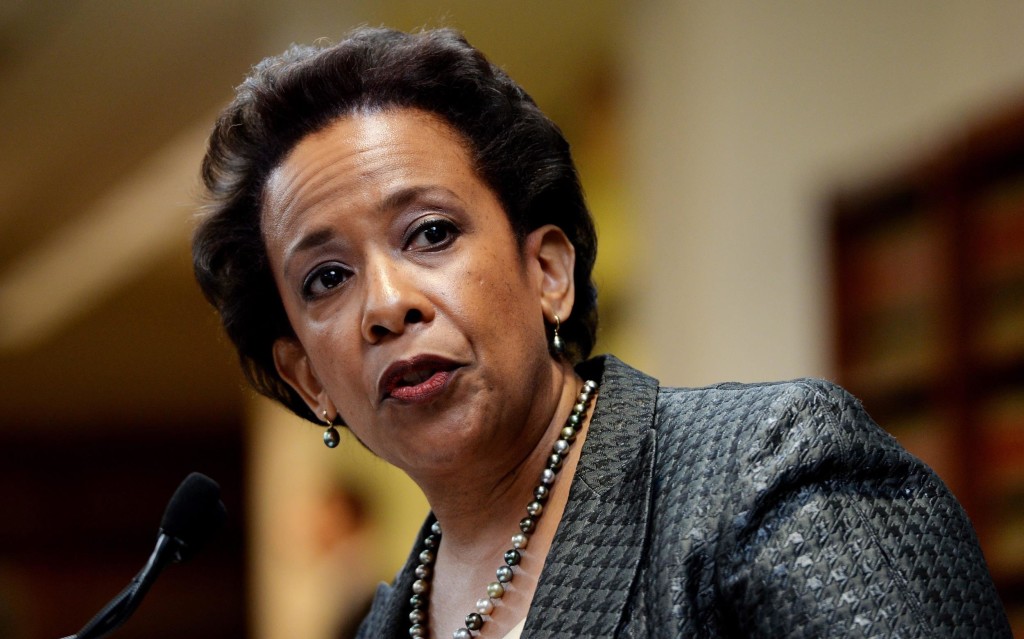
Attorney General Loretta Lynch is urging the nation’s governors to make it easier for convicted felons to obtain state-issued identification after they get out of prison, part of a broader plan being announced Monday to help smooth the path for state and federal inmates who are preparing to re-enter society. The announcement, on the first day of National Reentry Week, is aimed at helping the roughly 600,000 state and federal prisoners who return each year to American neighborhoods to better acclimate to society and remove some of the hurdles ex-convicts face in getting jobs, education and housing. “The long-term impact of a criminal record prevents many people from obtaining employment, housing, higher education and credit-and these barriers affect returning individuals even if they have turned their lives around and are unlikely to reoffend,” Lynch said in a seven-page policy titled “Roadmap to Reentry.” She planned to announce the policy change at an appearance in Philadelphia on Monday afternoon. The Justice Department initiative directs the federal Bureau of Prisons to prepare an individualized re-entry plan for each inmate that will take into account substance abuse, criminal history and education level. In addition, the agency will be reviewing its network of halfway houses and assessing its life skills, education and job training programs to ensure that they’re best serving the needs of inmates. A pilot program is also being launched at four BOP facilities for children of incarcerated parents. Lynch is separately calling on governors to allow federal inmates who are returning to their communities to exchange their prisoner identification card for state-issued identification, or to simply accept their BOP card as an identity document. Without identity documents, Americans leaving prison face challenges in getting jobs, housing or opening bank accounts, Lynch wrote in a sample letter to Alabama Gov. Robert Bentley. The topic of prisoner re-entry has attracted growing attention on the state and federal level. Last week, Virginia Gov. Terry McAuliffe issued an executive order that would allow more than 200,000 convicted felons to cast ballots in November. Republished with permission of The Associated Press.
Bill Clinton opening fundraising spree for wife’s campaign
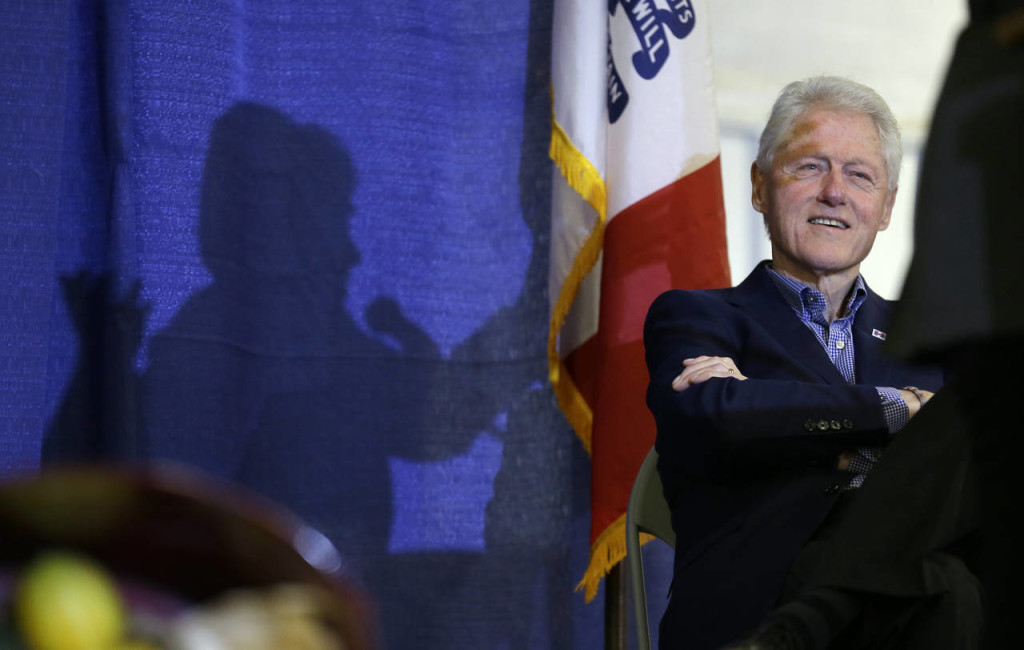
Former President Bill Clinton is going on a fundraising swing reminiscent of his presidential campaigns of the 1990s. But this time he’s doing it for his wife. Hillary Rodham Clinton‘s presidential campaign has scheduled more than a dozen December events featuring the former president as her team prepares for an end-of-year finance deadline ahead of the first contests in Iowa and New Hampshire. The fundraising blitz, Bill Clinton’s most aggressive stretch of the year, shows how Hillary Clinton’s campaign can multiply her money largesse with the help of her husband, one of the Democratic party’s most prolific rainmakers. Working together, the couple will hold at least five fundraising events on some single days in December. After staying behind the scenes for much of the year, Bill Clinton has slowly begun taking a larger public role in the campaign. And it isn’t just with fundraising. He introduced pop singer Katy Perry at a concert before the Iowa Democratic Party’s Jefferson-Jackson dinner last month and appeared with his wife at a party barbecue in Ames, Iowa, last week. “No one knows her better than him and no one knows the process better, so it’s a natural fit,” said Ira Leesfield, a Miami attorney and longtime Clinton donor. “It’s like Derek Jeter taking the field when he was 38.” The fundraising push comes as Vermont Sen. Bernie Sanders, Hillary Clinton’s main Democratic challenger, makes campaign finance reform a central part of his message. Hillary Clinton’s ties to Wall Street and financial industry donors will influence her agenda, Sanders has said. Bill Clinton kicks off December with fundraisers in Seattle, Los Angeles, the Phoenix area and in Laredo, Texas, where he will join with Rep. Henry Cuellar, a Texas congressman who represents the state’s Rio Grande Valley. The former president then raises money on Dec. 7 in Rhode Island with the state’s Democratic governor, Gina Raimondo, and Rhode Island’s congressional delegation. He headlines events in North Carolina later that same day. Later that week, the couple will show how they can spread their fundraising clout around the country. On Dec. 10, Hillary Clinton raises money in New York City while her husband meets with donors in Pennsylvania with stops in Pittsburgh, Bethlehem and Scranton. The next day, the former secretary of state will fundraise in Tulsa, Oklahoma, and St. Louis while her husband appears at events in the Chicago area and Munster, Indiana. In mid-December, the ex-president will raise money in Washington, D.C., including an event at the home of longtime Democratic powerbrokers Vernon and Ann Jordan. He will travel to Richmond later that day for a fundraiser with Virginia Gov. Terry McAuliffe, a friend and fundraiser for the Clintons. The Clintons will head into the holidays with a New York City dinner concert with musician Sting on Dec. 17. The event will benefit a new joint fundraising committee called the Hillary Victory Fund and will range from $33,400 per person to $100,000 for couples who serve as event chairs. David Brock, a Clinton supporter who runs several progressive groups aiding her candidacy, said Bill Clinton is a “gifted orator who has the ability to move people.” Brock recalled how in the spring of 2013 the former president spoke at a donor conference for two of his projects, American Bridge 21st Century and Media Matters. It was no standard stump speech, Brock said. “Rather, off the cuff, he wove an intricate tapestry for probably 45 minutes about the history of news and its relation to democracy,” he said. The 150 donors in the New York hotel ballroom were “in a trance,” Brock said. “There’s no one else at his level who is that good,” Brock said. “He says things about you that you can’t say about yourself, making him quite an effective endorser and validator.” Republished with permission of the Associated Press.
Email insights: Robert Bentley named vice chair of NGA Education and Workforce Committee
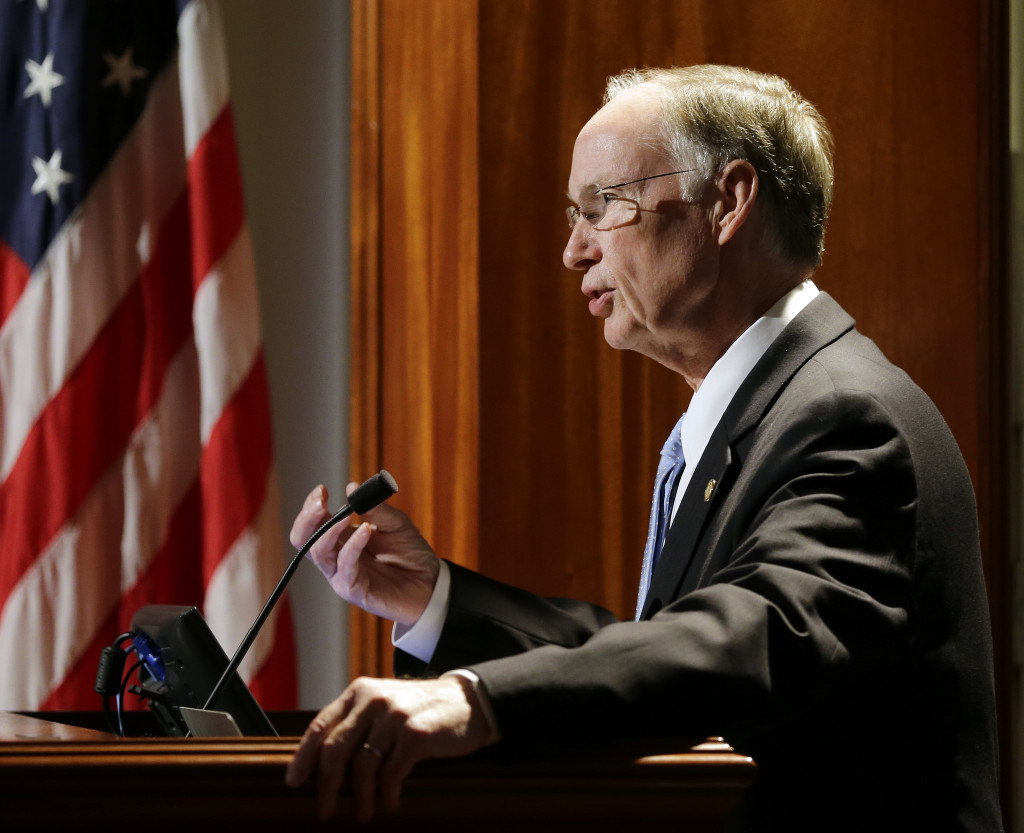
Gov. Robert Bentley‘s media office said Monday that on Saturday he was picked as vice chair of the National Governors Association (NGA) Education and Workforce Committee by NGA Chairman Utah Gov. Gary Herbert and NGA Vice Chairman Virginia Gov. Terry McAuliffe during the 2015 NGA Summer Conference in West Virginia. According to the NGA website, “The Education and Workforce Committee has jurisdiction over issues in the area of education (including early childhood, K-12, and post-secondary) as well as in the areas of workforce development. Members of the committee ensure that the governors’ views are represented in the shaping of federal policy.” The Education and Workforce Committee handles issues dealing with education related to early childhood, K-12 and post-secondary as well as workforce development. Members of the committee ensure that governors’ views are represented in the shaping of federal policy. “Education and workforce development are very important issues to me, and I look forward to serving on the NGA Education and Workforce Committee,” Governor Bentley said. “Alabama has made significant strides in preparing students for success in college and their careers. As governors, we are uniquely positioned to influence federal legislation and regulations that affect education and workforce policies. I look forward to sharing Alabama’s success in the area of workforce development with other governors.” In 2014, Governor Bentley created the Alabama Workforce Council to advise and support members of the State School Board, the Chancellor of the Alabama Community College System, presidents of Alabama’s four-year institutions and the Superintendent of the Department of Education on ways to more closely tailor the state’s workforce education programs with the workforce needs of new and existing Alabama business and industry. During the 2015 Regular Session, Governor Bentley supported and signed legislation aimed at streamlining workforce development efforts across state government, creating a one-stop-shop for job creation and meeting industries’ needs.
Hillary Clinton says ‘love triumphed’ in gay marriage ruling
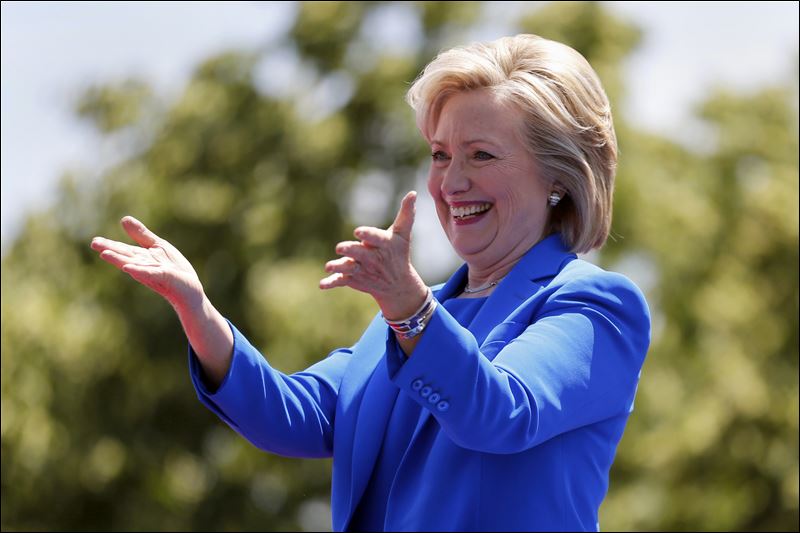
Democratic presidential candidate Hillary Rodham Clinton on Friday praised the Supreme Court’s ruling declaring same-sex couples have a right to marry and suggested that her Republican opponents were being left behind by history. In one of her most partisan speeches since announcing her presidential campaign, Clinton criticized the field of more than a dozen Republican candidates for opposing gay marriage, gun control, immigration reform and women’s reproductive rights. “We can sum up the message from the court and the American people in just two words: Move on,” she said in a fiery speech to Democratic activists gathered in Northern Virginia for a party fundraiser. Casting herself as a fighter for struggling Americans, Clinton pledged to advocate for all those facing economic discrimination and prejudice. “I’m on the side for everyone who’s ever been knocked down but refused to be knocked out,” she told the cheering audience. “I will always stand my ground so you and my country can gain ground.” Clinton equated the gay marriage decision with the decision striking down bans on interracial marriage, saying that “love triumphed in the highest court.” She vowed to fight discrimination against lesbian, gay, bisexual, and transgender people, and accused Republicans of being “determined to lead us right back into the past.” “Instead of trying to turn back the clock, they should be joining us in saying no, no to discrimination once and for all,” she said. Clinton was making the first stop of her presidential campaign in Virginia, a state likely to be closely contested in the general election. President Barack Obama won the state in 2008, the first time a Democratic presidential candidate had captured its electoral votes in decades, and again in 2012. Clinton’s political tactics in the state will likely mirror Obama’s winning strategy: increase the number of black and minority voters at the polls while capturing a sufficient share of the white vote in suburban Washington, D.C. Her personal connections may give her an additional advantage. She took the stage alongside Gov. Terry McAuliffe, her longtime friend and fundraiser, who won office in 2013. His fundraising efforts helped bankroll the campaigns of both Clinton and her husband, former President Bill Clinton. After they left the White House, McAuliffe used his personal wealth to help the couple get a mortgage on their house in Chappaqua, New York. McAuliffe’s gubernatorial campaign was run by a young operative, Robby Mook, who now is working as Clinton’s campaign manager. “This is personal for me,” McAuliffe told the crowd at the fundraiser. “I’ve known Hillary for decades. We’ve worked hard together. We’ve played hard together.” He added: “She’s a lot more fun than Bill Clinton is and I love him, too.”


